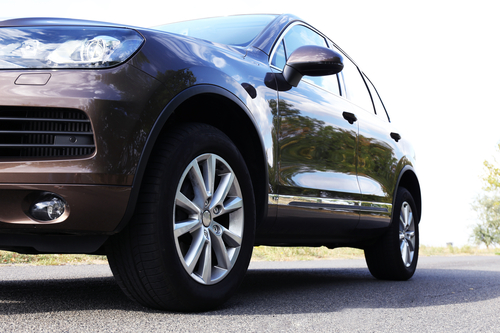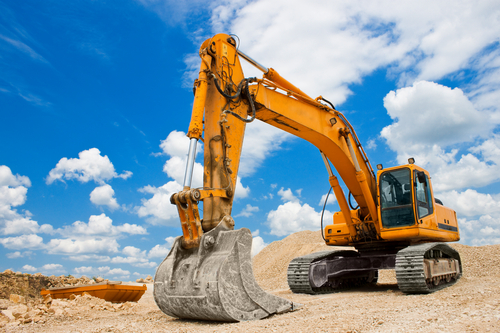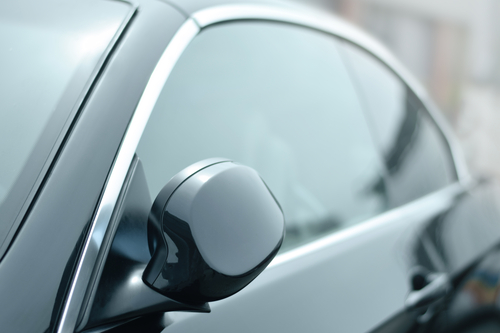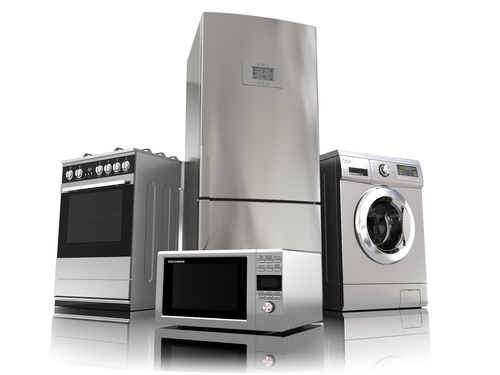Skoda presents its second SUV Coupe for China
At the Motor Show in Guangzhou, China, Skoda unveiled the second SUV coupe, which will be available exclusively in China, which is now the largest sales market for the VW Group brand. The Kamiq GT is based on the Skoda Vision GT concept car presented at the Shenzhen International Auto Show in June this year. The model was designed in cooperation between designers at SAIC Skoda China and a team in the Czech Republic. The Kamiq GT has been presented to the public at the car show in Guangzhou.
The lines of the coupe are determined by a flat roof, a rear spoiler and the exhibited wheel arches. The aggressive front makes the model appear powerful and dynamic, and the 17-inch wheels also contribute to this. The GT is slightly larger than the regular Kamiq, which costs the equivalent of 11,960 euros in China. The interior is attractive and solidly designed, with a horizontal brushed metal trim running across the full width of the dashboard. Under the body, however, there is proven, not to say outdated technology. Unlike the European version of the Kamiq, which is based on the modern MQB, the Chinese Kamiq GT is based on the old PQ34 platform of the VW Golf VI. The engines are not of the latest generation either. Available are a 1.5-litre petrol engine from the normal China Kamiq or a 1.2-litre turbo with 115 hp and seven-stage DSG gearbox only available in the GT.

Compact SUVs are very popular in China. Among the 10 most popular models of 2018 from domestic Chinese manufacturers are six SUVs. And while the sales figures for passenger cars in the past 16 months fell by a total of 5.8 percent to 1.93 million units in October, crossover variants and SUVs were able to defy the downward trend with a slight plus of 0.1 percent and 870,000 units respectively in the same period. This trend also benefited the strategy of the Volkswagen Group, which has presented five completely new crossovers and SUVs for China since the beginning of 2018 as part of its SUV offensive. The aim now is to conquer the market further with other Group brands such as Skoda and Seat and secure market share. Complete vehicles, parts and components require a CCC certificate for import to China or local production. The Chinese CCC (China Compulsory Certificate) is a system for standardizing product quality. We will be happy to advise you on the upcoming CCC certification of your products.
For more information on how CCC certification, the CCC Self-Declaration and voluntary CCAP or CQC certification may affect your company, or for more information about CCC certification in general, the process, and the associated costs, please visit our website and our News Section where you will find current updates twice a week.
Please do not hesitate to contact us for further details and consultation. You can contact us via e-mail, or call us (UK: +44 2071931135, Rest of Europe: +49 69 2713769150, US: +1 773 654-2673).
You can also check out our free CCC-Brochure, which can be downloaded right here as a PDF file or you consult our book (in English) “A Brief Guide to CCC: China Compulsory Certification”, which can be found directly hier on Amazon.
Here you can download our brochure about the CCC Self-Declaration.
Here you can download our brochure about the voluntary CCAP or CQC certification.
Steady Growth for Consumer Electronics and Smart Home Products in Korea
Analysts are forecasting steady growth of 7% annually over the next 5 years for the consumer electronics market. For the smart home market annual growth of over 13% is predicted over the next years. For importing and selling most of these products a KC certification is required. In order to benefit from the growth over the next years a Korea certification is an essential prerequisite.
Smart home products can already be found in 22% of households and this share is expected to grow in the next years. One contributor to this development have been initiatives by the South Korean government to develop national smart home standards. In addition, several alliances between technology, communication and construction companies have also been founded in order to develop common standards and marketing strategies in order to further support the expansion into this new market.
Even though fears around security and privacy can be a risk factor, current growth is mainly driven by falling component costs and growing competition in the market. The benefits of well-integrated components for a home-automation system that allow remote control and energy savings still outweigh the risks with consumers.
Entertainment and lighting-solutions are the most popular sectors in the smart home market, while products in the security segment are still not in very high demand. However, this sector is expected to experience the most growth over the next years.
New GB Standard GB 18296-2019 for Automobile Fuel Tank Certification
The Chinese authority SAC (Standardization Administration of the People’s Republic of China) has published a new Standard GB 18296-2019, which will be effective from July 1, 2020. The new Standard is replacing the former Standard GB18296-2001 “Safety Property Requirements and Test Methods for Automobile Fuel Tank” and is the valid standard for Chinese fuel tank certification. This standard has been updated in accordance to the latest international technology standard, specifically referring to the EG-R34 regulation of the Economic Commission for Europe “Uniform Regulations for the Certification of Vehicle Fires”. Fuel tanks in China can obtain a voluntary CQC or CCAP certification.

The main changes are:
- The scope of application of the standard has been modified. This standard specifies the requirements for the safety performance of automobile fuel tanks using gasoline and diesel as fuel.
- The applicability was extended to include trailers
- Added requirements and test methods for fuel tank overturn test
- Added fuel permeability requirements and test methods for plastic fuel tanks
- Added fuel resistance requirements and test methods for plastic fuel tanks
- Modified the test method for the fire resistance of plastic fuel tanks
- Increased safety requirements for fuel tank installation
- Deleted the technical requirements and test methods for vibration of plastic fuel tanks
- Removed the requirements and test methods for the opening pressure of the safety valve, and introduced an automatic pressure compensation device to balance the pressure inside and outside the fuel tank.
Are you interested in getting more information regarding the new GB Standard for automobile fuel tanks? Do you have any questions about the application for certification modification? If so, please call or email us anytime. Write us an Email or call us: UK: +44 2071931135, Rest of Europe: +49 692713769150, US: +1 773 654-2673.
Also check our website if you want more information regarding CCC certification, the CCC certification process, CCC costs, and more information about our all-inclusive CCC certification package. You may want to look at our references page to see what some our clients have to say about us.
Here you can download our brochure about the CCC Self-Declaration.
Here you can download our brochure about the voluntary CCAP or CQC certification.
Pre-shipment Inspection Allows Growing Interest in Online Industry Portals for Used Machines in China
There has been increasing interest in China to buy used machines from abroad since the process of pre-shipment Inspection has been considerably simplified in 2015.

These purchases are particularly interesting for smaller private companies that have little financial strength and only limited access to the state banking sector. In addition, they are more flexible than other companies with low-priced machine investments.
Machines “Made in Germany” are in high demand, with many machine builders offer on-site services such as offering a machine overhaul or upgrade.
Those interested in used machines are increasingly using online industry portals. On the portals you will find information on prices and technical specifications. The regional association of the China Association of Plant Equipment is one of the largest networks for used machines. The associated “China Used Machine Network” is the contact point for over 3,000 members.
Now that the construction industry is recovering, used construction machinery is also in increasing demand. The online platforms CeHome or Esy are good places to go for used construction machinery.
If you would also like to export a used machine to China, you will find information on pre-shipment Inspection here.
Write us an Email or call us at +49-69-2713 769 261 for Europe and +1-773-654-2673 for America. We will gladly support you.
New GB Standard GB 9656 for safety glass in vehicles
Based on current information the new GB Standard for Safety Glass will become effective on July 1, 2020. The Standard GB 9656-2003 was implemented in April 2004 and has now been totally revised. The standard is relevant for the CCC certification.

The main changes are:
- Additional terms and definition
- Additional requirements for “rigid plastic glazing pane”
- Additional general rule for test methods
- Additional head impact and abrasive test for thick laminate glass
- Additional contents about glazing materials with facial plastic film
- Revised glass classification
- Revised test zone for windscreen glass
- Revised non-test zone
- Revised requirements for fire resistance
- Deleted color identification requirements
- Deleted the requirements of zone tempered glass
Similar to former GB-Standard updates it is very likely that new product testing will be required to ensure product conformity.
We will gladly assist you with the product testing in China. Are you looking for more information regarding the new GB Standard for automobile/truck safety glass? Do you have any questions about the application for certification modification? If so, please call or email us anytime. Write us an Email or call us: UK: +44 2071931135, Rest of Europe: +49 692713769150, US: +1 773 654-2673.
For more information on how CCC certification, the CCC Self-Declaration and voluntary CCAP or CQC certification may affect your company, or for more information about CCC certification in general, the process, and the associated costs, please visit our website and our News Section where you will find current updates twice a week.
Here you can download our brochure about the CCC Self-Declaration.
Here you can download our brochure about the voluntary CCAP or CQC certification.
Limited Work by the Certification Authorities Due to the Corona Virus
Due to the spread of the corona virus in China the Chinese government has extended the national Spring Festival holiday. The certification authorities along with most other relevant offices are closed, working from home or with limited staffing. With this official announcement both the government and the certification authorities CNCA and CQC have now pointed out that there will be restrictions on the implementation of certifications to be expected in the coming weeks.
We have summarized the most important information from these announcements for you below:
The CNCA gives all subordinate certification bodies the opportunity to select suitable methods in order to continue to guarantee that the plants are audited. If factory inspections will be postponed due to the corona virus, then the certification bodies must inform the factories and draw up a suitable action plan so that the postponed audit can be carried out later.
The test laboratories in China must organize themselves accordingly to ensure that the tests in China will run normally.

The CQC is currently not conducting factory inspections outside of China. It may be possible to commission a foreign institution to do the audit via the CQC.
For all plants that have recently received non-conformities during their audits, the deadline to correct this is extended to 3 months after the epidemic has ended. If non-conformities result from errors in the application documents, the corrected documents must still be submitted to CQC within the previously allotted time.
For plants that urgently need an audit, since otherwise the validity of the certification may expire, the validity of the certification is extended to 3 months after the end of the epidemic.
For certificates from companies whose production has been discontinued due to the epidemic and which therefore cannot carry out factory inspections, the deadline for suspending the certificate by the certification body can also be postponed to three months after the end of the epidemic.
When the epidemic can be seen as ended is yet to determine by the Chinese government.
We will continue to keep you up to date on all new announcements and effects on certification processes.
For more information on how CCC certification, the CCC Self-Declaration and voluntary CCAP or CQC certification may affect your company, or for more information about CCC certification in general, the process, and the associated costs, please visit our website and our News Section where you will find current updates twice a week.
Please do not hesitate to contact us for further details and consultation. You can contact us via e-mail, or call us (UK: +44 2071931135, Rest of Europe: +49 69 2713769150, US: +1 773 654-2673).
You can also check out our free CCC-Brochure, which can be downloaded right here as a PDF file or you consult our book (in English) “A Brief Guide to CCC: China Compulsory Certification”, which can be found directly hier on Amazon.
Here you can download our brochure about the CCC Self-Declaration.
Here you can download our brochure about the voluntary CCAP or CQC certification.
CATARC Huacheng Certification is granted the right to issue CCC certificates for automobiles by CNCA
On December 20, 2019 the CNCA issued Announcement No. 25, 2019 “Announcement on Issuing the implementing agencies for Compulsory Product Certification and the third batch in 2019 of designated test laboratories”. With the CNCA’s Announcement No. 25, 2019, CATARC Huacheng Certification (Tianjin) Co., Ltd. was granted CCC Certification authorization for entire vehicles.

China Automotive Technology and Research Center Co., Ltd. (CATARC), established in 1985, is a central government-level enterprise belonging to the State-owned Assets Supervision and Administration Commission of the State Council and a comprehensive science and technology corporate group with extensive influence in the automotive industry in China and abroad.
CATARC plays an industrial role as the “independent and impartial third-party organization” and sticks to the development principles as “piloted by science and technology, oriented to the industry, driven by innovation and focusing on green development”.
For more information on how CCC certification may affect your company, or for more information about CCC certification in general, the process, and the associated costs, please visit our website and our News Section where you will find current updates twice a week.
Please do not hesitate to contact us for further details and consultation. You can contact us via e-mail, or call us (UK: +44 2071931135, Rest of Europe: +49 69 2713769150, US: +1 773 654-2673).
You can also check out our free CCC-Brochure, which can be downloaded right here as a PDF file or you consult our book (in English) “A Brief Guide to CCC: China Compulsory Certification”, which can be found directly hier on Amazon.
China largest consumer market for electronic household appliances
The sales market for household appliances has experienced steady growth in recent years and, according to experts, the trend is expected to continue in the next decade. In global terms, China is the largest consumer market for household appliances. Rising incomes, an up-and-coming middle class and the desire for a comfortable and Western-oriented lifestyle are the reasons for this positive development. High demand for household appliances is also expected for markets outside China, Southeast Asia and India.
Within the household appliance industry, there is a shift from traditional devices to devices with additional functions such as touchscreens, connection to the Internet and smartphones, and automatic data collection. This transition is driving many household appliance manufacturers to new developments and to gain market share. Smart Homes and IoT also offer increasing revenue opportunities for manufacturers.

The global market for household appliances was estimated at $615 billion in 2017 and is expected to reach $850 billion by 2025, an annual growth rate of 4.1 percent. For the Chinese market, the China Quality Certification Centre (CQC) regularly publishes new announcements on its official website about a wide range of products that are either subject to voluntary CQC certification or CCC obligation. As early as June 2014, the Certification and Accreditation Administration of the People’s Republic of China (CNCA) announced an implementing regulation for household and similar electronic appliances for household use. This stipulates that household appliances must comply with GB standards and must be CCC-certified. We advise you on the general provisions of a China Compulsory Certification (CCC), the detailed procedure and the expected costs.
For more information on how CCC certification may affect your company, or for more information about CCC certification in general, the process, and the associated costs, please visit our website and our News Section where you will find current updates twice a week.
Please do not hesitate to contact us for further details and consultation. You can contact us via e-mail, or call us (UK: +44 2071931135, Rest of Europe: +49 69 2713769150, US: +1 773 654-2673).
You can also check out our free CCC-Brochure, which can be downloaded right here as a PDF file or you consult our book (in English) “A Brief Guide to CCC: China Compulsory Certification”, which can be found directly hier on Amazon.



